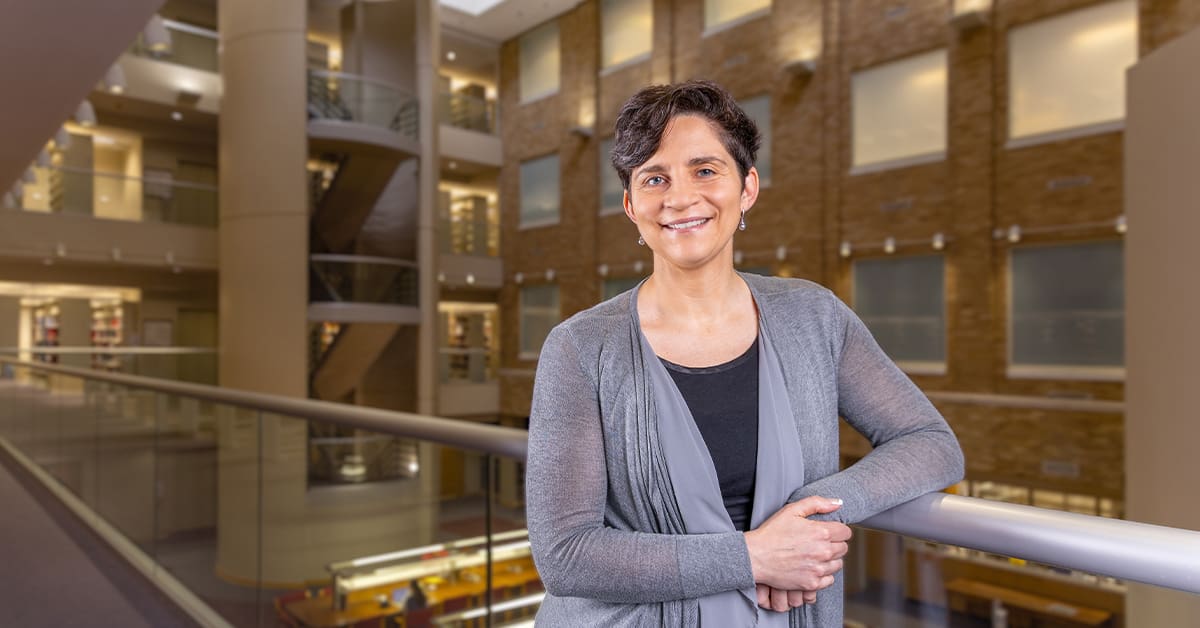A Bowen Graduate’s Mission: Connecting Law, Mental Health and Justice in Arkansas

In Arkansas jails, individuals with severe mental illness can go weeks, sometimes months, without medication, treatment, or meaningful contact. The consequences are quiet and devastating, unfolding out of sight and across systems that were never built to manage them.
It is a reality Dr. Rachel Fazio did not anticipate when she began conducting forensic evaluations across 11 counties. But once she saw the gaps between mental health care, legal knowledge, and the people caught in between, she could not ignore them.
Fazio is one of fewer than a dozen neuropsychologists in the United States who specialize in criminal forensic work. With a doctorate in clinical psychology and dual concentrations in neuropsychology and forensic psychology, she recently added a Juris Doctor to her credentials—not to change careers, but to strengthen her work at the intersection of medicine and law.
Neuropsychology, Fazio explained, focuses on brain-behavior relationships, such as how conditions like ADHD, dementia or traumatic brain injuries affect memory, decision-making and behavior. Forensic psychology, on the other hand, applies clinical training to legal settings.
“Technically, it’s any evaluation you would do for a court or administrative body,” she said. She read legal cases, participated in mock trials and was trained to testify, all before she ever set foot into law school.
Fazio moved to Little Rock for a role at the VA and soon began working as a forensic evaluator across 11 Arkansas counties. In 2022, she enrolled full time at the UA Little Rock William H. Bowen School of Law. Earning a JD was not a pivot. It was a professional investment. “I was either going to do my forensic boards or get a law degree,” she said. “They both show that you care about what you do and require additional knowledge and certification.”
In contrast to state and federal systems, Fazio found that county jails in Arkansas varied dramatically. “Each county does things differently. Dramatically differently,” she added. Some had nurses on site. Others did not. Some contracted with private medical providers, while others left medication decisions to corrections staff. “There is not a uniform way to get mentally ill inmates in county jails the appropriate medications,” she said. Inmates often went without treatment if their prescriptions were not on a facility’s formulary or if they could not afford co-pays. Telehealth services, common since the pandemic, were sometimes unusable when inmates were too ill to leave their cells. “It can also cause a mental health crisis,” she said. “And that is just a glaring problem that is overlooked.”
As a student in Bowen’s full-time JD program, Fazio brought a seasoned professional’s lens to the classroom and found faculty who recognized the unique perspective she offered. Dean Lindsey Gustafson encouraged her early on, and Professor Joshua Silverstein became a trusted advisor. She also gained practical experience through externships, including one with the Central Arkansas Legal Services clinic.
Bowen also became the place where doors opened for her to share what she was seeing in Arkansas county jails. Fazio served as a resource to classmates and other members of the bar, writing for the Arkansas Bar Journal and speaking to the Saline County Bar Association about recognizing key warning signs and knowing when to communicate with a forensic evaluator in cases involving mental illness.
Fazio walked in Bowen’s May commencement ceremony and completed her final course requirement through a study abroad program in Rome this summer. With her JD now conferred, she plans to sit for the Arkansas Bar—not to practice law in a traditional sense, but to continue to practice criminal forensic evaluations and fitness to proceed.
Ultimately, Fazio hopes to improve communication between attorneys, evaluators, county jails, and hospitals. But she is quick to clarify her role. “As a forensic evaluator, I am unbiased,” she said. “But I have an ethical responsibility as a psychologist to advocate for someone when they can’t take care of themselves.”
Fazio hopes to see a future where attorneys are better informed, families are more empowered, and collaboration improves across legal and clinical lines. “If you have a seriously mentally ill family member in jail, keep an eye on them,” she said. “Put money on the books. Call the medical staff. Don’t let them slip through the cracks.”
